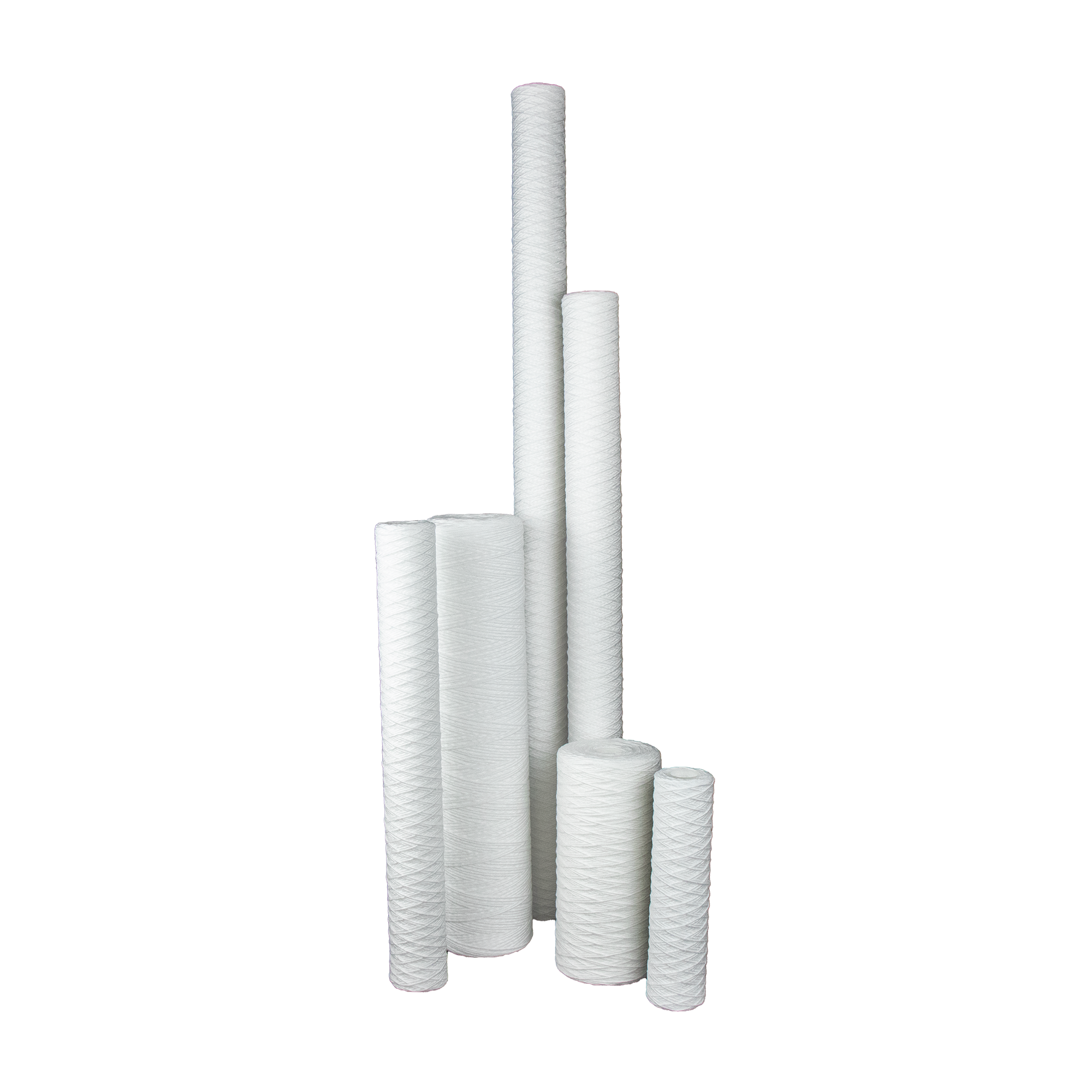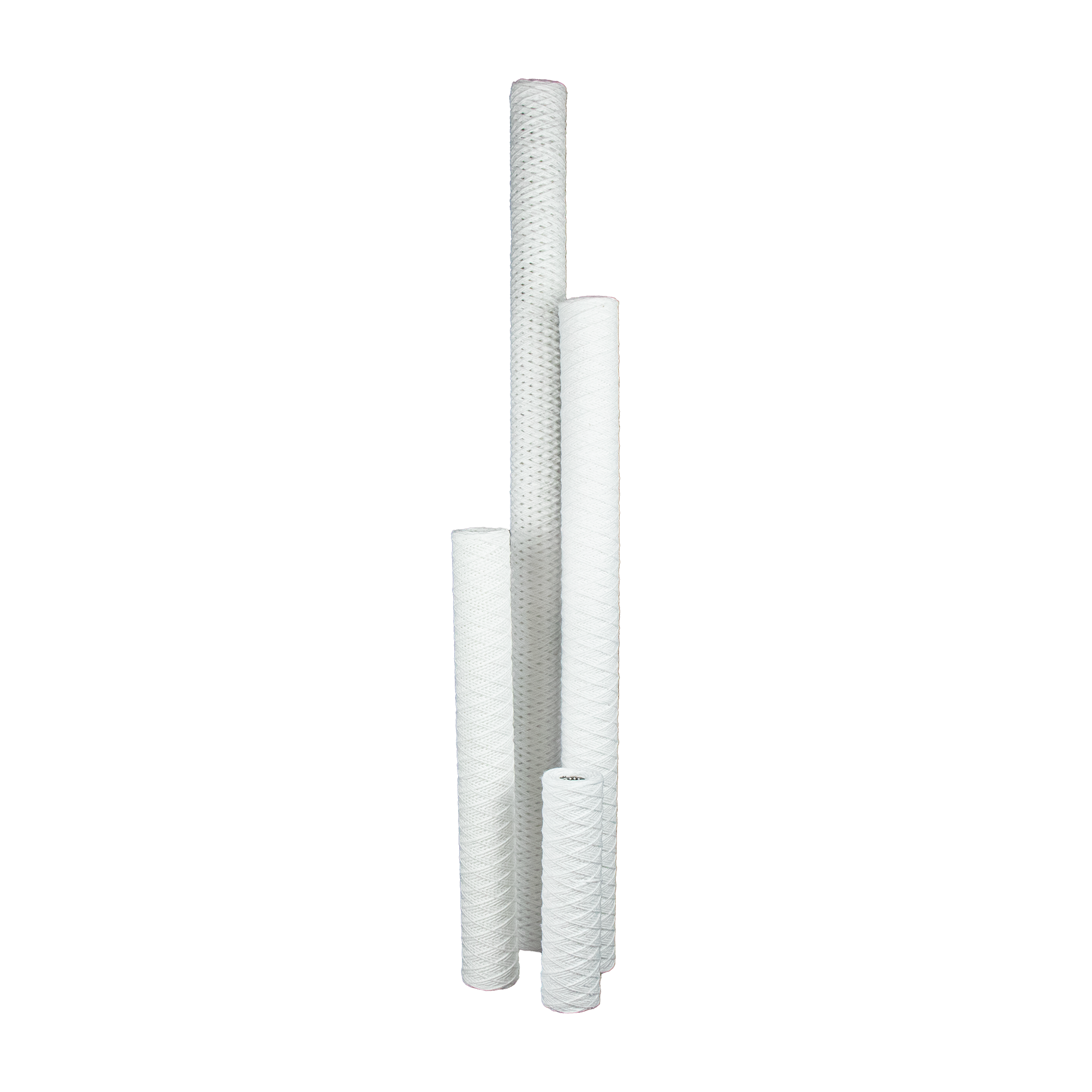Features & Information
The ‘traditional’ depth filtration method. Although less prominent following the release of more modern, spun-bonded technology, wound cartridges still provide relevant benefits in the form of chemical compatibility and temperature resistance at low cost.
FAQs - Wound Filters
Wound filters, also known as string-wound filters or depth filters, are cylindrical filtration devices used in liquid filtration applications. They are typically composed of a core material, such as plastic or metal, around which a filtering media is wound in a precise pattern. The filter media can be made of materials like polypropylene, cotton, or fibreglass.
Wound filters work by trapping and removing contaminants from liquids as they pass through the gaps between the wound fibres. The depth of the wound filter media allows for effective filtration of various-sized particles, making it ideal for applications with a wide range of contaminants.
Using wound filters offers several advantages, making them a popular choice for liquid filtration:
- Versatile Filtration: wound filters can effectively remove a wide range of contaminants, including sediment, sand, silt, and other particulates, from liquids.
- High Dirt-Holding Capacity: the depth nature of wound filters allows them to hold a significant amount of contaminants before requiring replacement.
- Cost-Effectiveness: they are generally more affordable compared to some other types of filters, providing a cost-effective solution for many applications.
- Compatible with Various Liquids: wound filters can be used with different types of liquids, including water, oils, chemicals, and various process fluids, making them versatile across industries.
- Reliability: due to their simple design and lack of moving parts, wound filters are reliable and have a long operational life.
- Broad Micron Ratings: wound filters are available in various micron ratings, offering flexibility in selecting the appropriate filter for specific particle size removal.
While wound filters are highly effective for many liquid filtration needs, they do have some limitations and considerations to keep in mind:
- Flow Rate: high flow rates may lead to a higher pressure drop across the wound filter, affecting overall system performance. Proper sizing and selection are essential to maintain desired flow rates.
- Chemical Compatibility: the choice of filter media should consider the chemical compatibility with the liquid being filtered to prevent filter degradation or leaching of unwanted substances.
- Plugging: In some applications with high levels of suspended solids, wound filters can become more prone to plugging, reducing their lifespan and requiring more frequent replacements.
- Limited Filtration Precision: while wound filters are effective in removing larger particulates, they may not be suitable for applications requiring fine filtration, as some smaller particles may pass through.
If you can’t find the product you’re looking for in our vast range, there’s a chance that we offer bespoke production, an alternative solution or have it currently in development. Please don’t hesitate to contact us, we’ll be happy to discuss your specific requirements and help you find a suitable solution.

